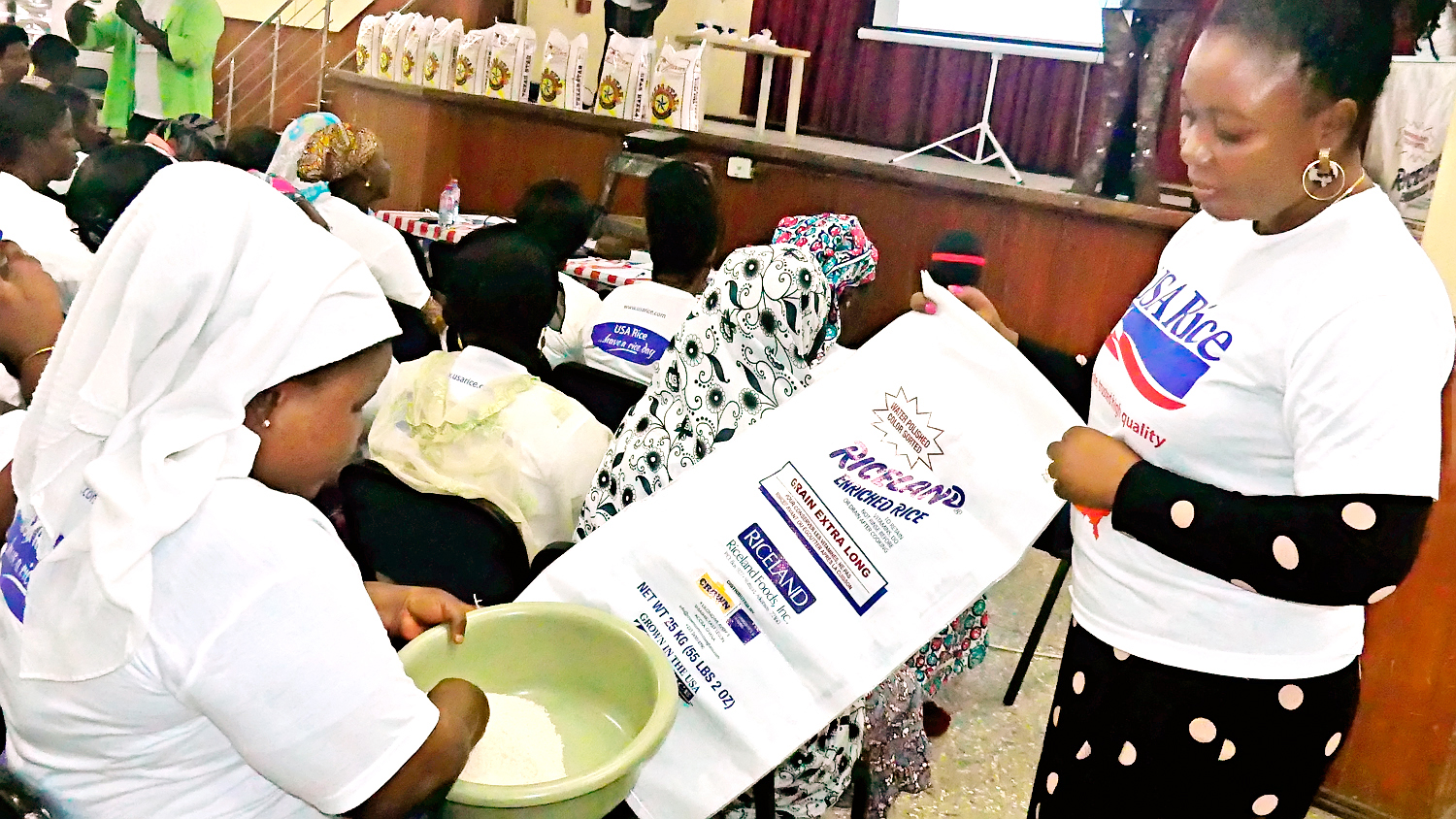Market Access & Promotion
Rice is one of the world’s most widely consumed grains and the primary dietary staple for more than half the world’s population. American rice farmers grow 9 million tons of rice each year, just more than half of which is exported to more than 120 countries.
The U.S. Department of Agriculture's Market Access Program (MAP), Foreign Market Development (FMD) Program, and Agricultural Trade Promotion Program (ATP) help the rice industry open foreign markets and promote our products abroad, with a proven track record of success in more than 30 overseas markets. Learn more about our international market promotions below.
International Promotions
Recent News
 Ghana promotions get the personal touch
Ghana promotions get the personal touch
Dec 03, 2019
ACCRA, GHANA – Late last month, USA Rice organized a foodservice seminar for artisanal commercial rice cookers and vendors in Ghana’s capital city as part of the newly launched promotional program here utilizing Agricultural Trade Promotion (ATP) funding. The ATP program is one of three programs that President Trump authorized in 2018 to assist agricultural producers who have been affected by retaliatory tariffs in many overseas markets, and USA Rice received more than $5.5 million to promote U.S. rice internationally over the next three years.
“Ghana used to be an important market for U.S. rice sales in West Africa,” said Eszter Somogyi, USA Rice director for Europe, the Middle East, and Africa. “Sales averaged more than 90,000 MT per year and USA Rice had a strong promotional program until 2013 when lower-priced Vietnamese and Thai fragrant jasmine rice captured a majority of the market and U.S. rice sales declined substantially. Fortunately, U.S. rice maintained its positive image, especially among foodservice professionals who appreciate the superior cooking characteristics, enabling U.S. rice to re-enter the market.”
To increase consumption in the foodservice segment, more than three hundred participants drawn from eight suburbs in Accra were invited to take part in the recent seminar, which also brought together the two leading importers of U.S. rice to Ghana, Crown Commodities and Tradepass Ghana Limited.
Auntie Ajara, a rice vendor for 18 years, echoed other food vendors like her in attendance when she said, “I can depend on the high quality of U.S. rice, even when cooked and kept overnight without refrigeration.”
Some of the challenges these vendors face have been inconsistent supply and availability on the market along with price hikes that are directly linked to the dollar versus the cedi (local currency) parity.
“The two importers of U.S. rice in Ghana talked about their local brands, Riceland and Texas Star, and took questions from the audience following each presentation,” said Somogyi. “Both companies donated rice samples to the participating foodservice associations and for a taste-testing for attendees following the seminar where everyone got a chance to examine the grains close up.”
The day-long seminar included a comprehensive presentation on the planting, handling, and processing of U.S.-origin rice and a discussion of U.S. rice types that highlighted their unique attributes important to this market segment
“Organizing this type of event is a cost effective way to reach a high number of small foodservice vendors who appreciate U.S. rice cooking characteristics,” said Somogyi. “These small shops depend on word of mouth reputation in their neighborhoods, and as rice is the most important element in many Ghanaian dishes, it is crucial for them to have consistent high quality, exactly what U.S. rice offers. Price remains the limiting factor on the market, as many small businesses find it difficult to pay for higher quality but more expensive food products like U.S. rice.”
Over the next two months, USA Rice will organize additional foodservice seminars in Ghana’s “Golden Triangle,” targeting foodservice associations in the major cities of Kumasi and Takoradi.